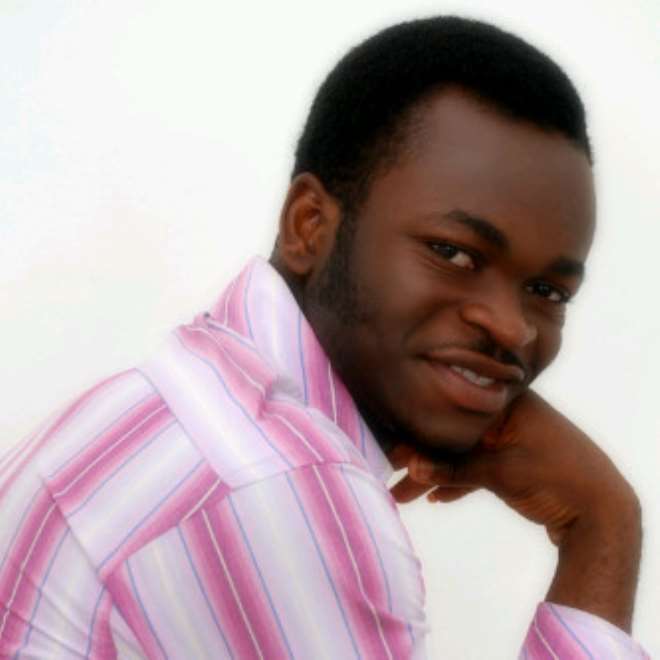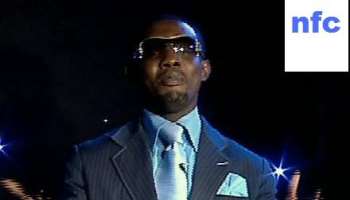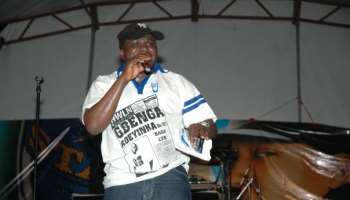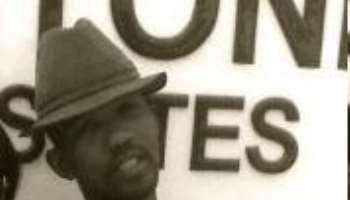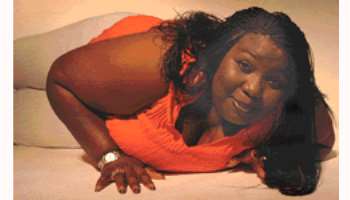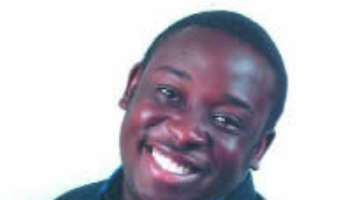The Hospital Killed Late Comedian CD John?
New facts have emerged on the circumstances surrounding the death of promising stand-up comedian, John Chijioke, popularly known as CD John.
Mr Chijioke died on March 24, at St. Nicholas Hospital, Lagos Island, following an auto accident while returning from an album listening party dedicated to an act under Questionmark Records, where he was the master of ceremonies.
According to eyewitnesses who got to the scene only minutes after it happened, Mr Chijioke did not fall into a coma immediately after the accident as earlier reported.
One of them, Questionmark's artist manager, Kaycee Oguejiofor, said the comedian, who became popular for his church-related jokes, stayed conscious for about two hours without medical attention after the accident, putting some of the blame on St. Nicholas Hospital for his eventual death.
“At the scene of the accident, we spent about 45 minutes before we could take him to the hospital and at the hospital we also spent about an hour before we could raise the N600, 000 demanded by the management of St. Nicholas Hospital before he could be admitted and treated,” Mr Oguejiofor said.
Narrating the events of the evening exclusively to NEXT, Mr Oguejiofor said Mr Chijioke was badly injured, adding that officials at the hospital had insisted on collecting an initial deposit of N600, 000 before treatment.
“They knew it was an emergency yet they made him wait till we got the money, which took about an hour. At some point we got N300, 000; they still did not attend to him until the money was completed. It was in the middle of the night, who will be carrying that large sum around? During that period he was still talking and making jokes. He even asked his girlfriend who was crying to stop crying. Afterwards the doctors took him in and later came back and pronounced him dead.” Mr Oguejiofor added that the five persons who sustained injuries in the accident, including Mr Chijioke, got to the hospital around midnight, adding that the hospital's insistence on “payment before service” also affected the other victims.
“The injuries were not all serious, but his (CD John's) was more serious. They asked for N100, 000 each from the four others before they could admit them but his (CD John's) was N600, 000 because his condition was critical,” he said.
When contacted over the accusations of negligence, the hospital's medical director, Dapo Majekodunmi, denied the claims, saying the hospital maintains a policy of treating emergency patients irrespective of immediate payment. The patient's log however showed that Mr Chijioke was attended to at 12:50am, but Mr Majekodunmi said it had taken some time to get him out of the car “because he was badly injured.”
“N600, 000 is not enough to keep a patient waiting; there have been many cases where we have treated patients free here,” he added.
More facts will continue to surface on Mr Chijioke's death. Hoever, in spite of Mr Majekodunmi's claims, it is clear that a clear policy guaranteeing treatment for emergency casualty cases by hospitals is required in the state.
The Lagos sector commander of the Federal Road Safety Corps, Jonas Agwu, last week announced that it would begin to prosecute hospitals in the state who reject accident victims. Mr Agwu said his officials were “overwhelmingly frustrated in getting treatment for accident victims.”
Mr Chijioke's family members were said to be undisposed to comment on the controversy surrounding his death, but his childhood friend who has been with the family since the incident described the current situation as “unfortunate and stupid.”
“It's only wasting people's lives. For instance, CD John was the only son and the family's breadwinner. It should be compulsory for accident victims to get treatment in emergency cases,” he said.
In his reaction, the state health commissioner, who promised to investigate Mr Chijioke's issue further, described it as “ethically wrong” for a hospital to deny treatment to a patient brought in as an emergency case.
“If anybody comes for emergency cases, you have no right to send the person away. You need to save the life of that patient,” he said.
Also speaking on the issue, Victoria Ibezim-Ohaeri, the program coordinator of Social and Economic Rights Action Centre (SERAC), a non-governmental organisation aimed at promoting people's rights, described such denials as “a violation of human rights”, saying the hospital and the government can be sued by the victim's family for the violation of such rights.
Abiola Yahaya, programme officer, Consumer Advocacy Forum of Nigeria (CAFON), also condemned the refusal of hospitals to commence treatment of emergency accident victims until paid.
“When it comes to emergency, you should treat the patient first and ask for money later,” she said.
However, the chairman of the state chapter of the Nigerian Medical Association, Edamisan Temiye, blamed the country's health care system for the repeated cases of denial, saying advocacy should be for a functional health insurance scheme.
“We should advocate that a percentage of health insurance should be for emergency care. The HMOs (Health Maintenance Organisations) are making billions and keeping it, and not benefitting anybody. Treating emergency cases is expensive and you can't expect the doctor to run into debt treating emergency patients,” he said.
Latest News
-
 "If You're For Me, I Am For You" - Cubana Chief P
"If You're For Me, I Am For You" - Cubana Chief P -
 "3 Days To Go" - Femi Adebayo Urges Fans To Get S
"3 Days To Go" - Femi Adebayo Urges Fans To Get S -
 "Stop Asking Me Questions About Speed Darlington"
"Stop Asking Me Questions About Speed Darlington" -
 "Benue Is The Most Underdeveloped State I've Ever
"Benue Is The Most Underdeveloped State I've Ever -
 Stan Alieke Urges Young Professionals To Take Lin
Stan Alieke Urges Young Professionals To Take Lin -
 Chizzy Alichi Teases Fans With Baby Reveal, Promot
Chizzy Alichi Teases Fans With Baby Reveal, Promot -
 "I'm Not Wearing Makeup From July 4th Till Decemb
"I'm Not Wearing Makeup From July 4th Till Decemb -
 "Stop The Challenge Of Mocking Kids With Down Syn
"Stop The Challenge Of Mocking Kids With Down Syn -
 Regina Daniels Celebrates Sons As They Mark Birthd
Regina Daniels Celebrates Sons As They Mark Birthd -
 Speed Darlington Threatens To Sue NAPTIP For Defam
Speed Darlington Threatens To Sue NAPTIP For Defam


